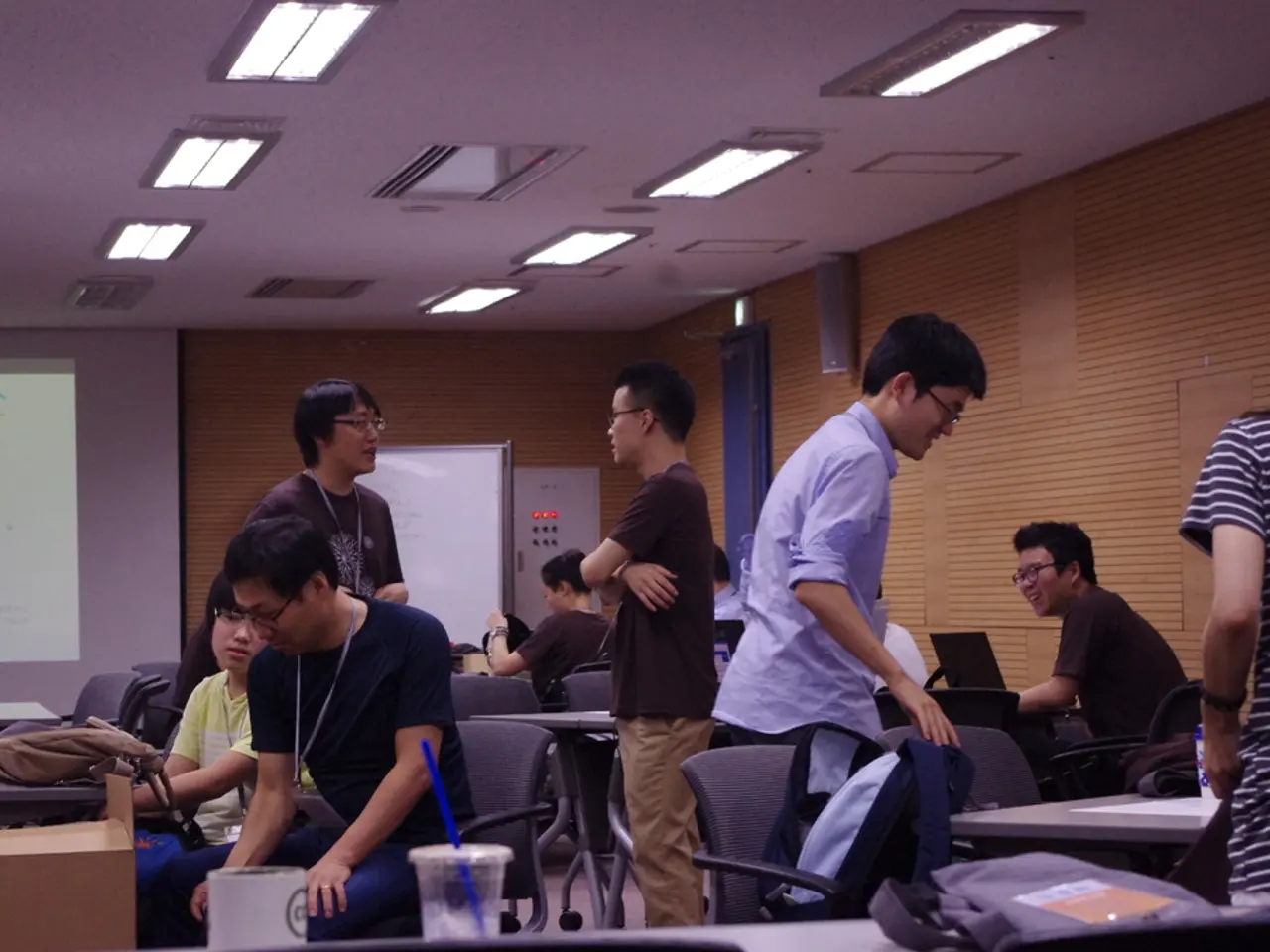Exploring Shifts in Education Policies Concerning Technological Advancements
### Transforming Education: A Global Approach to Equity and Access
In an era of rapid technological advancement, governments and educational institutions worldwide are embracing innovative solutions to create equitable educational opportunities for all students. Here's a look at some current initiatives that are reshaping education, focusing on accessibility, inclusivity, and personalized learning.
#### United States
The Executive Order on Advancing AI in Education, signed on April 23, 2025, aims to integrate AI into the educational system, promoting AI literacy and proficiency across all levels. The White House Task Force on Artificial Intelligence Education coordinates federal efforts to implement AI education policies. Additionally, over 60 organisations have pledged to support AI education, making it accessible to K-12 students nationwide.
#### United Arab Emirates
The UAE is emphasizing inclusivity in education, using AI to integrate students with special educational needs into mainstream education. Institutions like the Dubai Autism Center and Al Noor Training Centre for Persons with Disabilities utilize AI-powered tools to enhance engagement and skills development. The UAE also promotes equity through access to immersive technologies like Virtual Reality, allowing students across different regions to experience advanced educational content.
#### Global Trends
AI is being used globally to analyze student performance data, predict potential learning barriers, and enable early interventions. This personalized learning approach addresses equity by providing targeted support to students who need it. There is also a growing interest in integrating AI, Augmented Reality (AR), and Virtual Reality (VR) to enhance learning experiences and create inclusive learning environments.
These initiatives demonstrate a commitment to leveraging cutting-edge technologies to improve educational outcomes and equity, ensuring that all students have access to quality education, regardless of their geographical location or abilities.
#### Equity and Access Considerations
Increased accessibility: AI and immersive technologies are helping bridge the gap in access to quality education by providing tools that can be used by students with diverse needs and from different geographical locations.
Inclusive Education: Initiatives aim to integrate students with special needs into mainstream education, enhancing their educational experiences and skills development.
Personalized Learning: AI-driven systems can tailor educational content to individual students' needs, addressing learning disparities and supporting better outcomes.
Governments worldwide are launching initiatives to support the integration of technologies like AI and blended learning systems in schools. Mobile applications expand access to educational resources, enabling learning anytime and anywhere. Targeted investments in technology for education are necessary for policy frameworks to support technology integration.
The European Union's Digital Education Action Plan focuses on supporting member states in developing effective educational policies for technology incorporation. Regular consultations, collaborative research initiatives, and focused working groups on specific technology trends are strategies for effective stakeholder engagement in policy formation.
Inclusive technology adoption strategies involve focused investments in infrastructure, training programs for educators, partnerships with technology providers, and community engagement. The collaborative efforts of all stakeholders drive the evolution of educational policy trends in technology, ensuring equitable access and effective integration of technology.
Online and blended learning has significantly transformed educational landscapes, providing greater accessibility and flexibility for diverse learning environments. Funding initiatives specifically directed toward improving technological infrastructure in low-income schools are essential. Technology fundamentally reshapes curriculum development, facilitating personalized and adaptive learning experiences.
The US Department of Education has an initiative to distribute federal funds for technology upgrades in under-resourced schools. Training programs for educators in under-resourced schools promote the integration of technology into the classroom. Educators, administrators, policymakers, technology developers, parents, and students are key stakeholders in shaping educational policy trends regarding technology integration.
Virtual reality offers immersive learning experiences, allowing students to explore complex concepts in engaging ways. Broadband infrastructure expansion in underserved areas is a key strategy to ensure internet accessibility.
These initiatives underscore a global shift towards using technology to create more equitable educational opportunities, bridging gaps in technology access and supporting teachers' professional development. By fostering an environment where policies can be adjusted in response to unforeseen technological developments, governments are ensuring that education remains relevant and effective in the digital age.
- The European Union's Digital Education Action Plan emphasizes creating effective educational policies for technology integration, using strategies such as regular consultations, collaborative research initiatives, and focused working groups on specific technology trends.
- The United States Department of Education has an initiative to distribute federal funds for technology upgrades in under-resourced schools, while also promoting training programs for educators to facilitate technology integration in the classroom.




